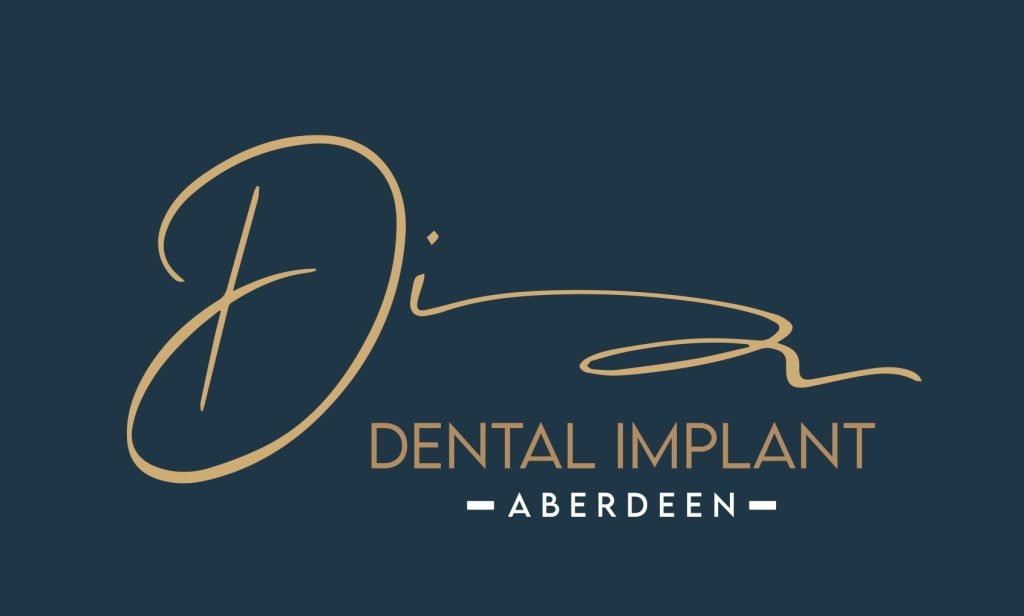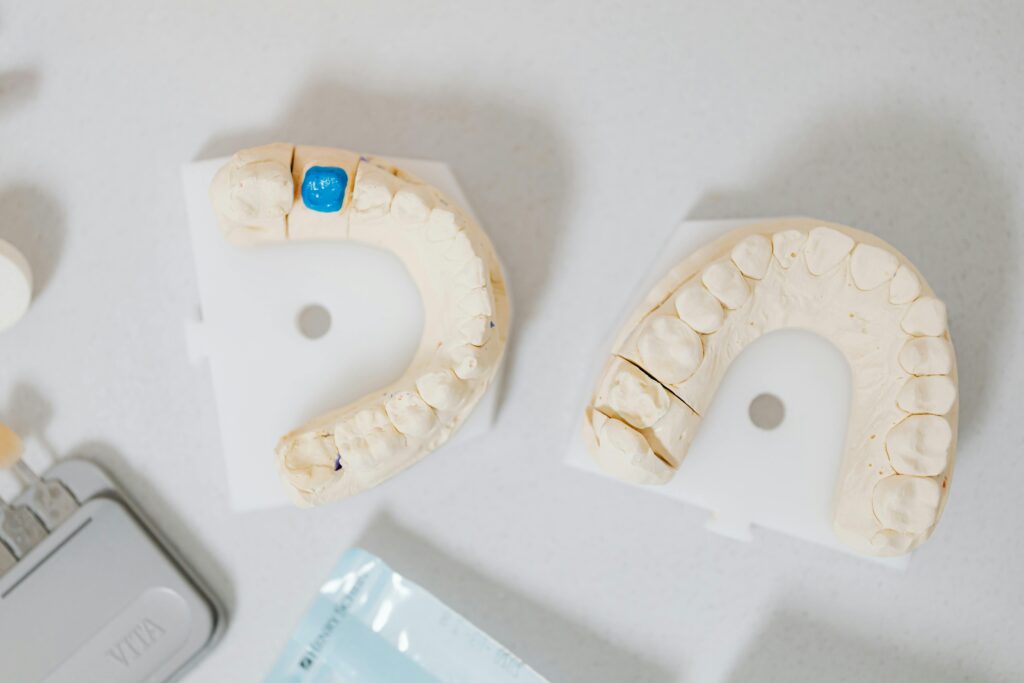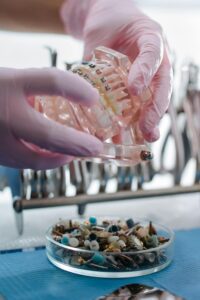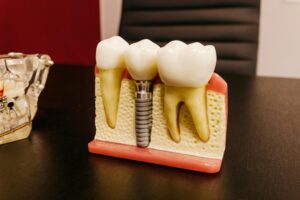Getting dental implants is a significant step towards improving oral health and overall well-being. Whether it’s a single implant or a full arch restoration, patients in Aberdeen often look forward to enjoying the benefits of a strong, natural-looking smile. However, one of the most overlooked aspects of recovery after the procedure is diet. What you eat after surgery doesn’t just influence your comfort; it can have a real impact on the success of your implant.
In this article, we’ll walk through what patients in Aberdeen should know about eating after getting dental implants. From what to eat in the first 24 hours to how your diet should evolve over the weeks, this guide provides practical advice for anyone recovering from implant surgery.
Why Your Diet Matters After Dental Implant Surgery
Osseointegration is a process through which your body heals when you get dental implants. It is at this time that the implant will become securely attached to the jawbone to form a secure support of a crown, bridge or denture. The success of this process depends on various factors, and the most significant one is that no unnecessary stress should be subjected to the implant site. That is where the diet enters the game.
Consuming good foods is able to:
- Minimise the chances of infection
- Reduce oedema and pain
- Promote bone and tissue repair
- Guard against pressure or destruction in the place of operation
Conversely, the consumption of improper foods, particularly those which are hard, sticky, or spicy may result in complications and the process of healing.
The First 24 Hours: What to Eat Immediately After Surgery
On the initial day, following your surgery, your mouth will be tender, and it may also be swollen. Light bleeding and numbness will be there too. Care should be taken with the foods and only very soft, cool and lukewarm food should be taken.
Some of the food you can safely eat during this period are:
Without seeds Smoothies
Opt for soft-fruit smoothies involving soft fruits such as bananas, peaches and mangoes. Some fruits should also be avoided like strawberry or raspberry since they irritate the area.
Smooth yoghurt (non bits)
Unflavoured or flavoured yoghurt free of fruit bits is of high-quality protein and easy in the mouth.
Mashed potatoes
It is pleasant when they are smoothed out with milk or broth.
Soups (lukewarm)
Soups made of cream, or blended are the best, anything too hot will serve to inflame the area and bring on more swelling.
Soft oats, or porridge
They can be allowed to cool a bit and not have any nuts or hard toppings.
Gelatine or custard
These are soft, easy to swallow, and provide a little comfort food after surgery.
Stick to eating on the opposite side of your mouth if possible, and do not use a straw, the suction can dislodge blood clots and slow healing.
Days 2 to 7: Soft Foods That Support Healing
By the second day, pain and swelling may start to lessen, but you’ll still need to be cautious. This is the period when the gums are forming around the implant and the bone is beginning to fuse.
Your diet can become slightly more varied now, but the focus should remain on soft foods that require minimal chewing.
Some good choices include:
Scrambled eggs
High in protein and soft in texture, eggs are a great food during this stage.
Soft fish (like cod or haddock)
Aberdeen has access to fresh seafood, and soft-cooked fish is an excellent source of nutrients and omega-3s.
Well-cooked vegetables
Carrots, peas, and broccoli can be steamed until soft. Mash them if needed to avoid any chewing stress.
Boiled or soft pasta
Pasta with a mild sauce (nothing spicy or acidic) can be satisfying and safe to eat.
Soft rice or risotto
These are gentle on the mouth and filling.
Soft fruits
You can start adding bananas and ripe peaches or avocados to your diet; it is better to mash them or cut them thinly.
Ensure that you continue to eliminate crunchy snacks, spicy foods, and alcohol, as well as fizzy beverages and anything with seeds or grains, which may get stuck on the healing gum.
Weeks 2 to 6: Building Strength With Caution
After weeks have passed by, you will start to feel normal in the mouth. But keep in mind that the pain eventually goes, but the inner healing process does take place. Your implant is still fusing with the jawbone, and therefore you should not be in a hurry to bite hard or crunchy foods.
At this stage, you may add food that is soft and more fibrous in small portions. Try:
- Chicken (finely shredded or cooked over a long time)
- Ensure that it is super tender so that you will not chew on it too hard.
- Soft meat or stews that can be minced Premium meats or stews Premium meats or stews
- They are also rich in proteins, and they are comfortable eating when they are well cooked.
- Light-colored or soft whole wheat bread with butter/soft spreads are acceptable.
- Soft cheese such as brie, cream cheese, and grated cheddar is acceptable as an accompaniment to a meal.
Be aware of any pain during chewing. When the food is too tough or pressurising, avoid it and take steps back because it is advisable to focus on the soft foods.
Long-Term Diet Considerations After Full Recovery
After 3 to 6 months, you can have your dentist check whether your implant has fully healed, at which point you can resume your normal diet. Dental implants are made to work similarly to natural teeth, which implies that you will eventually be able to eat most of the food once again.
With that being said, however, it is always a good idea to follow a healthy diet:
- Do not bite into hard foodstuffs such as ice-hard sweets or tough meat
- Restrict highly sticky food like caramel or chewing gum
- Maintain a balanced diet with a high content of calcium, vitamin D, and protein in the long run in reference to oral health.
Foods to Avoid During the Healing Period
To ensure a smooth recovery, here’s a quick summary of what to avoid in the days and weeks after implant surgery:
- Nuts and seeds (can get stuck in the surgical site)
- Popcorn (small pieces can irritate or injure the gum)
- Crisps and crunchy snacks
- Crusty bread or bagels
- Spicy dishes
- Acidic foods like citrus fruits and tomatoes
- Fizzy or alcoholic drinks
- Hot beverages (especially in the first 48 hours)
- Sticky sweets or chewing gum
Final Thoughts for Aberdeen Patients
Dental implants are likely to be a new beginning of the journey to a new life in the case of patients in Aberdeen and the neighboring regions. Although recovery needs patience and time, intake of the right diet may really help. By feeding the mouth with the right foods and at the right time, you will trigger less pain and disappointment and hence recover the mouth easily. Just talking to your dentist or oral surgeon can be a good idea whenever you are not sure about certain foods. The thing is that we all have slightly different ways of recovery, and a little bit of help according to the situation of an individual is the way to keep it all on wheels.





